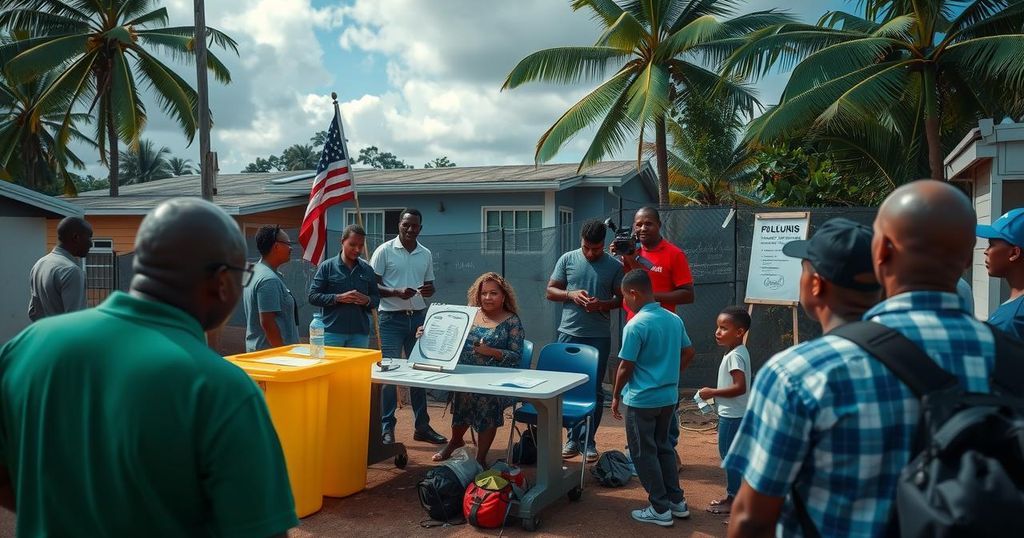World news
AFRICA, ALLIANCE OF CHANGE, CHAGOS, CHAGOS ISLANDS, DEMOCRACY, ELECTION, ELECTIONS, ELECTORAL PROCESS, GOVERNMENT, INDIAN OCEAN ARCHIPELAGO, IRFAN RAHMAN, JUG, MAURITIUS, MILITANT SOCIALIST MOVEMENT, NATIONAL ASSEMBLY, NAVIN RAMGOOLAM, PARLIAMENTARY SEATS, PRAVIND JUGNAUTH, RAMGOOLAM, SOCIALIST MOVEMENT
Michael Grant
0 Comments
Mauritius Votes Amid Phone-Tapping Scandal, Concerns Over Electoral Integrity
Mauritius conducted parliamentary elections marred by a phone-tapping scandal, raising concerns about electoral integrity and governance. Prime Minister Jugnauth faces scrutiny amid leaked recordings, while the opposition emphasizes the need for vigilance against fraud. The election, taking place post an important sovereignty agreement, reflects ongoing challenges to democracy in the nation.
Mauritius held its parliamentary elections on Sunday amid a contentious atmosphere created by a phone-tapping scandal. The election comes on the heels of a significant agreement ceding sovereignty of the Chagos Islands from Britain to Mauritius. Prime Minister Pravind Jugnauth faces increased scrutiny following leaked recordings involving government officials and media figures, which have raised fears about potential electoral fraud. Despite the government’s attempts to ensure a fair electoral process by deploying police to polling stations, the opposition, led by former Prime Minister Navin Ramgoolam, has urged vigilance among voters. The election’s integrity has been further questioned by a governmental attempt to impose a social media ban, a move that was reversed after backlash. A total of 891 candidates are contesting for 62 seats in the National Assembly, with the nation experiencing a voter turnout of 40% by midday. The current economic and governance landscape in Mauritius is troubling, having slipped in its governance rankings in Africa. As political stability remains a concern, a new political coalition has emerged, advocating for transparency and accountability. This election will be a pivotal moment for Mauritius, as the nation navigates its historical challenges while grappling with contemporary political issues, including corruption and the influence of established political families. The outcome could reshape the future of democracy and governance in the archipelago, vital for its economic stability and growth.
Mauritius, an island nation in the Indian Ocean, prides itself on a stable democratic tradition since gaining independence from Britain in 1968. In recent years, however, issues such as corruption and governance have become increasingly problematic. The current political landscape features two main parties battling for power after a historic agreement concerning the Chagos Islands, which highlights ongoing sovereignty disputes. The election takes place in a context of heightened political tension, driven by concerns about the handling of civil liberties and electoral integrity. Historical leadership patterns also reflect a political culture that has seen the same families dominate for decades.
The parliamentary elections in Mauritius are a crucial juncture for the country, overshadowed by a scandal that could impact public trust and electoral integrity. With the opposition voicing concerns over potential fraud amid leaked recordings of politicians, the election’s credibility is in question. The results will not only affect the immediate political landscape but could also shape the future of governance and accountability in Mauritius as it addresses its economic challenges.
Original Source: www.bryantimes.com




Post Comment